
When attempting to figure out what supplements will best serve you as we age, start with what your body requires the most of for proper functioning, maintenance and repair. Science has made great strides in discovering what nature has to offer by way of inhibiting our Longevity Gene ‘FOCO3’ and key nutrients that support vitality and youthfulness. When evaluating peoples nutritional intake, the answer would be ‘no’ when assessing all the patients I see over the age of 40, and younger, as to their sufficient nutrient requirements.
The widespread problem facing all of us is the fact that we are not taught how to feed our bodies so they can restore and maintain us throughout our life in a manner we would all welcome. Add to this, our primary medical system does not have this information as part of their academic curriculum. I like some others have focused their education on the biochemical make-up of our body, substances and nutrients utilized for all the functioning and renewing processes throughout our body. Hopefully one day balance will be restored in our educational institutions.
There are numerous examples of the impact nutrient deficiencies cause throughout our body, but for now I will focus on one example which many people are unaware of that has affected so many; the reason why their cholesterol becomes imbalanced.
Briefly, the number one fat most required and essential to all processes, functions and restoration is an ‘omega 3 fatty acid’. This essential fat is what makes our HDL cholesterol (the good one that never deposits in our tissues).
The (bad fat) LDL cholesterol which does deposit within the artery wall and inside the arteries – is made from high concentrations of omega 6 fatty acids found in most cooking oils such as canola, vegetable oil, corn oil, sunflower oil, safflower oil, soybean oil and so on, and on a lesser level saturated fat from animals.
Why is Cholesterol so Important
A term used often related to our aging process ‘we are as young or old as our glands’. Our glands make our hormones of which we would be dead in a very short time without hormones! Hormones are made from cholesterol. And when our body’s most desired cholesterol is not available, the body must still find a way to make hormones from whatever form of fat it can find, hence from poor or bad fats, producing low density lipoproteins (LDL).
Another reason we need the right form of cholesterol, has already been mentioned, for making healthy cholesterol that does not promote cardiovascular related diseases. HDL made from omega 3 fatty acids will actually help pull out bad fat deposits when in adequate supplies. Therefore, we will be starting with the number one most required element by our body – omega 3 fatty acids.
Essential Omega 3 Fatty Acids
If you wish to keep you mental faculty and memory as well as prevent heart disease among many other problems, your number one focus should be omega 3 fatty acids derived from or found in fish oils. Long chained fatty acids are only found in fish or some other aquatic species. These are the type directly used by our brain along with ketones found in MCT oil (medium chained triglycerides).
There are major differences between omega-3 and omega-6 fatty acids, even though they seem to share the same identity. The most striking difference is how they perform in our bodies. Omega-3 fats, derived from fish and seeds, are the primary fats necessary for all body functions and cell growth and restoration. Recent advancements made by scientists and researchers have shown that these essential fats are required everywhere in the body. This, by inverse, means that a lack of omega-3s—coupled with an imbalance of other dietary fats—is one of the main instigators for disease.
The omega-3 fatty acids found in fish oil contain docosahexaenoic acid (DHA) and eicosapentaenoic acid (EPA). These special elements have been shown to benefit many heart-related problems when consumed in appropriate dosages. A few examples are lower triglyceride levels, suppler arteries, stroke prevention, normalization of heart arrhythmias, lower blood pressure, and less sticky blood (which improves circulation).
Another essential fatty acid related to omega-3s is alpha-linolenic acid (ALA). Higher sources of ALAs include seeds and nuts, as well as certain spices and vegetables, but these are short chain-fatty acids (as compared to long chain-fatty acids, found in their highest quantities in fish, seafood and fish oil products). This is an important fact, since only long-chained fatty acids can feed the brain directly and efficiently.
Vegetarians
Vegetarians must get their EPA and DHA from vegetarian sourced ALAs, through the conversion of these fats by the body. The short chained alpha linolenic acid (ALA) found in plants may be difficult to convert to DHA. There is some controversy over whether or not this process is always successful, since it is slow and perhaps incomplete. To help ensure the availability of sufficient levels of long chain fatty acids, the recommended dosage is 4:1, or 4 parts omega-3s (such as chia and flax oil) to 1 part omega-6 fatty acids (found in olive and vegetable oils). I have had vegetarian/vegan patients who had to reintroduce fish oils because they were becoming unwell.
Vitamin D (Fat Soluble)
When the body becomes deficient in vitamin D, it is virtually impossible for proper absorption of calcium. Fat soluble vitamin D can be found naturally in fish oil, and is best absorbed with a meal that contains some form of fat—preferably a good fat source. Milk is another source of fat soluble vitamin D, as long as most of the fat has not been removed. But if you have challenges in getting enough vitamin D, sunshine is still the most reliable source.
Good sources for fat soluble vitamin D can be found in the following foods.
• Fish liver oils (wild salmon and cod liver oils), fatty fish (salmon, mackerel, halibut, sardines, and herring
• Egg yolks
• Fortified milk, orange juice and cereals
• Dried shiitake mushrooms
Vitamin D (Water Soluble)
For the most potent form of vitamin D, choose vitamin D3 (cholecalciferol), the active form of vitamin D. Do not purchase vitamin D2, as it is not as biologically active or as safe as vitamin D3. The recommended dosage for vitamin D3, as put forward by the Vitamin D council, is a minimum of 1000 IU per 25 pounds of body weight.
Vitamin D
A major application of vitamin D involves calcium absorption. It is virtually impossible for the body to properly assimilate calcium and phosphorus without vitamin D. When vitamin D supplies are insufficient the body robs our bones for the calcium it needs. Healthy bones and teeth will begin to fade away if levels of vitamin D are not sustained.
Ongoing research linking vitamin D deficiency and abnormal cell development, as seen with cancer, has shown great promise, particularly in the areas of colon, prostate and breast cancer. Vitamin D regulates the genes associated with cancers and autoimmune disease. Vitamin D helps in the growth of new skin cells; distressing disorders such as psoriasis and other itchy, flaking problems have been helped with higher levels of vitamin D. In addition to inadequate sunlight, hereditary and kidney and liver disorders will inhibit the absorption of vitamin D. Deficiency of vitamin D leads to impaired bone mineralization contributing to bone softening diseases such as rickets, osteoporosis and osteomalacia.
Vitamin K2 (MK-7)
There are two basic types of Vitamin K: K1 and K2. The different forms of vitamin K carry out specific duties in the body. Vitamin K1 is found in green plants, especially their juice (chlorophyll), and maintains healthy blood clotting in the body; whereas K2 is produced by bacteria in our gut. A study released at the International Nutrition and Diagnostics Conference in the Czech Republic announced the value of K2 (MK-7) for the prevention of inflammation. The study demonstrated that K2 (MK-7) prevents inflammation by blocking pro-inflammatory markers (monocytes) produced by white blood cells.
K2 isn’t as widely available in our food as K1; the Japanese food natto is by far the richest source of K2 (although some types of cheese contain K2, with Gouda ranking the highest). If you feel your diet is insufficient, pick it up with 150 mcg; there is no evidence of overdosing occurring, even with very high amounts of this vitamin.
Gut Flora
Our body’s individual microbiome environment—the community of microorganisms that perform a number of crucial functions in our body—is our constant companion and caregiver throughout our life, without which we could not survive. And, because these beneficial bacteria are key to a well-functioning immune system, it’s only natural that they help ward off chronic inflammation. We have 100,000 billion viable microbes in our intestines; of the fecal mass excreted from the body, 85 percent is biomass (bacteria).
The biggest threat to these 200 different species (7000 strains) is antibiotics. Considering the prominent place these microbes hold in our body, it isn’t hard to see how chronic inflammatory intestinal diseases like Crohn’s and colitis can besiege the body as a result of our gut’s having been napalmed by antibiotics. To support this crucial system, supplement daily with probiotics and eat fermented foods like kefir, natto and sauerkraut.
Probiotics: Lactobacillus acidophilus and Bifidobacterium bifidum have the unique ability to increase our body’s built-in defense mechanisms. Probiotics assist in fighting superbugs and routinely balance certain pathogens in the body like H-pylori, yeast, fungus and e-coli to assist with the maintenance of normal intestinal health. Vancomycin and Teicoplanin are common drugs used to treat MRSA infections which upset the gastrointestinal tract. Probiotics help counter the uncomfortable side effects produced by the drugs.
Magnesium
Magnesium is arguably the most important mineral in the body. Not only does magnesium assist in the production of cellular energy, but the heart cannot make use of the constant energy supply needed to function properly without adequate magnesium. A few other requirements of magnesium include energy production, bones and teeth, neuromuscular sensory systems and the synthesis of vitamin D (to assist calcium in finding its way into the bloodstream).
Magnesium is involved in many biological roles and performs more functions than any other mineral by a significant margin. It is the relaxer in the body, is routinely called upon by the downside of the heart beat, prevents muscles from cramping and works hand in hand with calcium for healthy bones and teeth. Magnesium can also be useful as a natural antispasmodic.
Zinc – Second Most Important Mineral in the Body
Zinc is an overachiever and the second most important mineral in our bodies. Personally, I have always taken zinc on a regular basis. Zinc is huge for the immune system and is required by all the trillions of cells in your body. Not that you need any more reasons to take it than these two facts but lets take a better look at its direct applications that may identify with a current symptom or need by your body. One of the main problems with getting enough zinc in your diet depends on how many medications you may be on. Listed below are some examples of drugs that reduce zinc in the body. Another common problem is the soil quality today with current farming practices, contains have much lower amounts of zinc. Also phytic acid in plants such as bran can tie up zinc and block its absorption.
Medications can Reduce Zinc in the Body
Certain drugs have shown to lower or interfere with the mineral zinc. Zinc has shown to be reduced by ACE inhibitors along with the following examples: tetracycline, aspirin, corticosteroids, oral contraceptives, warfarin, thiazide diuretics, valproic acid, medroxyprogesterone, conjugated estrogens and bile acid sequestrants. To ensure safety, search out any complications or contraindications with all medications, especially those routinely taken.
Caffeine Inhibits Absorption of Zinc
Immune System Requires Zinc
Wound Healing
Zinc Helps Hair Loss and Acne
Healthy Vision Needs Zinc
Other Zinc Benefits
Along with many different aspects of the above mentioned duties, zinc lends a helping hand to other vital systems by regulating hormones, improving insulin levels and blood sugar management, cell protection, nutrient metabolism, DNA repair and reducing inflammation, brain functioning – to name but a few.
Coenzyme Q10
Coenzyme Q10 is one of the most popular and versatile natural heart supplements available today. This vitamin-like compound has the ability to produce energy at the cellular level and holds a particular affinity for high-energy organs, such as the heart. As a result, CoQ10 is able to serve as a vital component in the production of ATP, which in turn provides the spark necessary for energy production and storage. Without adequate reserves of CoQ10, the entire cardiovascular system suffers. (Statin drugs deplete Coenzyme Q10 by inhibiting the body’s manufacturing of CoQ10 by up to 40 percent).
Since the antioxidant CoQ10 is required to maintain and support cardiovascular health, a deficiency of this nutrient can lead to heart problems. Typically initiated by poor nutrition and stress, the best way to combat CoQ10 deficiency and enhance its absorption is to take in CoQ10 with food that contains some fat. Suggested dosage: 200–400 mg daily.
Supporting the Thyroid with Iodine and L-Tyrosine
The thyroid gland is the regulator for efficient energy production in the body. Inadequate levels of thyroid hormone (when not produced and sustained), can have a large impact on our energy levels. Our energy levels are determined by the rate at which our bodies metabolize the food we eat into energy, a process which is established and controlled by the thyroid gland. Thyroid hormone works with and affects every cell in our body.
This gland is often referred to as an “emotional” gland. Any circumstance that creates large amounts of stress, heartache, or grief can quickly deplete hormone reserves in the thyroid. Your thyroid may need attention if you have any of the following symptoms:
• Poor circulation (cold hands and feet)
• Low energy, feeling tired
• Weight gain (resting metabolic rate will be low, slow to burn fat)
• Experiencing stress and depression
• Hair loss and alopecia
• Sexual dysfunction
• Hot flashes
Iodine
One of the best ways to ensure a healthy, functioning thyroid gland is to provide sufficient quantities of the unbound (free form) amino acid L-Tyrosine, as well as iodine, essential fats and probiotics. This is the number one missing – crucial element I see missing in my patients diets/supplement regimes. Learn why it is so important -in addition to all else about thyroid health and disease -in my recent edition ‘Reverse Thyroid Disease Naturally, June 2018’.
• Iodine: Iodine drops taken daily as directed by product of choice, as well as sources like kelp, dulse, and liquid potassium iodide contain plenty of iodine. (Full thyroid support combination products will also include iodine.)
• L-Tyrosine: L-Tyrosine is the main component in making energy (see below).
• Essential Fatty Acids: These should include the omega-3s found in fish oil and seed oils.
• Probiotics: 20 percent of thyroid gland function depends on these beneficial bacteria.
Avoid iodine temporarily in cases of hyperthyroid conditions.
L-Tyrosine
Chronic depression, exhaustion, and poor metabolism are all potential symptoms of low levels of the amino acid L-Tyrosine. Most people over the age of 24 are low in this amino acid due to poor quality protein intake and certain digestive problems.
• This amino acid is the main component in producing energy. For that reason, chronic fatigue is greatly helped by higher levels of Tyrosine.
• Tyrosine makes all the difference in brain exhaustion and fatigue.
• L-Tyrosine (combined with vitamin B6 and vitamin C) is required to convert and sustain proper levels of the uplifting and energy-producing hormone dopamine, which has an enormous impact on metabolic energy.
• Tyrosine is instrumental in the availability of a constant energy output to the body by way of promoting balanced metabolic rates.
• Tyrosine is necessary for the production of epinephrine and noradrenaline, two key adrenal hormones.
B Vitamins
B vitamins are necessary for the body to metabolize fats, carbohydrates and proteins. They are needed for normal growth and development. Any bouts of stress or prolonged worry and fatigue, puts great demands on the body for greater amounts of B vitamins. They are also required for red cell and tissue formation and used throughout the body including our brain.
Whole Food Form of B vitamins: Nutritional Yeast
This form of yeast is not bakers yeast related. Some examples include Engivita, Tortula, Brewers and Nutritional Flaked yeast. These all are complete protein sources and contain all B vitamins. They easily melt into liquids or added on food. The flaked variety is a bit cheesy tasting. The only one with a strong flavor listed is brewers yeast – it tastes like beer. The others do not. Take 1 to 2 tablespoons once or twice a day depending on how weak or enervated the body is or for any anxiety and other related conditions.
Antioxidants: Raw Food and Free Radicals
Raw food is nature’s way to better health and a longer life. Culturally as human beings our evolution of food and its preparation is alarmingly opposed to our genetic makeup. Our inherent nature is to be predominately alkaline. We achieve this by eating a diet in accordance to our body’s natural law which includes 80% fruits and vegetables, and of that percentage, 70% should be raw. The quality and longevity of our life depends on meeting our body’s nutritional needs on a regular basis.
Let’s start by taking a brief look at our physiology. By simply observing our digestive process; the way in which we chew food and our long digestive tract is primed for the slow breakdown and absorption of plant material. This by design is set up for a predominately alkaline diet of mostly fruits and vegetables. Our body requires food with the life force still intact in order for regeneration to take place and the functioning of our systems depend on many elements that are forever lost during the cooking process.
Health benefits of raw and alkaline foods
Osteoporosis is directly linked to the acid/alkaline balance of the body. When we eat an acid food such as protein, it causes our system to become more acidic. The parathyroid gland (regulates the body’s acid/alkaline balance) in turn robs our bones and tissues of calcium to bring the blood back to its healthy alkaline state. This gland has full control, so much so that our skeletal system will be sacrificed to maintain our inherent balance. Therefore the diet must be addressed to prevent bone loss or to reverse the Ph imbalance.
The concept of a raw food diet is based on whole, unprocessed and uncooked fresh foods. The goal here is to include more live foods and juices into your daily diet to ward off disease and slow down the aging process, in additional to faster healing and pain reduction from high levels of antioxidants. A typical food list includes fruit, vegetables, sprouts, seeds, nuts, beans, dried fruit, coconut milk, and seaweed.
Digestive problems are common as we age primarily due to reduced enzyme activity from the age of forty but mostly because the body’s digestive enzymes have not been supported with live plant enzymes. Incorporating raw food with each meal supports the digestive process. Cooking food above 116 degrees F destroys enzymes in food that can assist in the digestive process and absorption of food. The nutritional value is also greatly diminished.
Raw foods rejuvenate, cleanse, raise oxygen blood levels and energize our bodies. The aging process is slowed immensely and vitality is felt throughout your whole being. The body becomes light; bowel cleansing enhances, circulation is increased, mental clarity improves and a zest for life is renewed. Weight loss is virtually guaranteed as is beautiful skin and reduced risk of heart disease and cancer. Other concerns in the area of diabetes and high cholesterol/triglyceride levels are all benefited by a raw food diet.
Nutritional Benefits of Raw Food and Sprouts
Raw food and sprouts are very nutritious for our health providing us with a wide spectrum of color which encompasses a great variety of phytochemicals and nutrients. Other benefits include fiber, enzymes, antioxidants, protein, nitrosamines, bioflavonoids, vitamins, minerals and low trans fat and saturated fat.
Free Radicals and Antioxidants
Our immune system makes a great effort to ward off free radicals through naturally manufactured antioxidants in the body. Most times, this attempt will fall short unless the body is supported with live, whole foods and quality antioxidant supplementation. For now, let’s take a quick look at how they support the body against free radical damage.
An antioxidant, at the basic level, is a molecule that defends or slows down the oxidation of other molecules. Antioxidants generously offer up their electrons to free radicals for stabilization to prevent tissue and cellular damage. However, each time an antioxidant neutralizes a free radical by sacrificing its electrons, it then stops being able to function as an antioxidant. Herein lies the great value of consuming concentrated nutrients found in raw juices, as well as those fruits and vegetables containing exceptionally high levels of antioxidants. Antioxidants are our first and best line of defense against inflammation and many degenerative diseases.
Other Supplements
Depending on your current health status, there may be specific nutrients required to re-create balance in the body or assist the healing and functioning processes. For instance, if you have type 2 diabetes, your pancreas will be low in the mineral chromium which is necessary for sugar regulations as well as fat metabolism – and the list would go on matching prolonged dietary deficiencies that led to any other current aliments. The body can only perform optimally when as many nutrients as possible is provided and sustained over the long run. Be mindful as well the amazing capacity the body has to heal itself once properly supported!
References:
1 Volpi E, Campbell WW, Dwyer JT, et al. Is the optimal level of protein intake for older adults greater than the recommended dietary allowance? J Gerontol A Biol Sci Med Sci. 2013;68(6):677-681. doi:10.1093/gerona/gls229.
2 Howell E, Murray M. Enzyme Nutrition: The Food Enzyme Concept. Wayne, N.J: Avery Pub. Group; 1985.
3 Patel PJ, Singh SK, Panaich S, Cardozo L. The aging gut and the role of prebiotics, probiotics, and synbiotics: A review. J Clin Gerontol Geriatr. 2014;5(1):3-6. doi:10.1016/j.jcgg.2013.08.003.
4 Saraswati S, Sitaraman R. Aging and the human gut microbiota–from correlation to causality. Front Microbiol. 2015;5. doi:10.3389/fmicb.2014.00764.
5 Kris-Etherton PM, Harris WS, Appel LJ. Fish consumption, fish oil, omega-3 fatty acids, and cardiovascular disease. Circulation. 2002;106(21):2747-2757. doi:10.1161/01.CIR.0000038493.65177.94.
6 Bradberry JC, Hilleman DE. Overview of omega-3 fatty acid therapies. Pharm Ther. 2013;38(11):681-691.
7 Lee JH, O’Keefe JH, Lavie CJ, Marchioli R, Harris WS. Omega-3 fatty acids for cardioprotection. Mayo Clin Proc. 2008;83(3):324-332. doi:10.4065/83.3.324.
8 Morris MC, Evans DA, Bienias JL, et al. Consumption of fish and n-3 fatty acids and risk of incident Alzheimer disease. Arch Neurol. 2003;60(7):940-946. doi:10.1001/archneur.60.7.940.
9 McCusker MM, Durrani K, Payette MJ, Suchecki J. An eye on nutrition: The role of vitamins, essential fatty acids, and antioxidants in age-related macular degeneration, dry eye syndrome, and cataract. Clin Dermatol. 2016;34(2):276-285. doi:10.1016/j.clindermatol.2015.11.009.
10 Cosgrove MC, Franco OH, Granger SP, Murray PG, Mayes AE. Dietary nutrient intakes and skin-aging appearance among middle-aged American women. Am J Clin Nutr. 2007;86(4):1225-1231.
11 Wada H, Goto H, Hagiwara S-I, Yamamoto Y. Redox status of coenzyme Q10 is associated with chronological age. J Am Geriatr Soc. 2007;55(7):1141-1142. doi:10.1111/j.1532-5415.2007.01209.x.
12 Bognar E, Sarszegi Z, Szabo A, et al. Antioxidant and anti-inflammatory effects in RAW264.7 macrophages of malvidin, a major red wine polyphenol. PloS One. 2013;8(6):e65355. doi:10.1371/journal.pone.0065355.
Copyright © 2018 – All Rights Reserved – Michelle Honda Ph.D.
Announcement
Look for my new forthcoming books “Reverse Heart Disease Naturally” (Jan.31, 2017) “Reverse Inflammation Naturally” (May 31, 2017) “Reverse Thyroid Diseases Naturally” (June 2018) and “Reverse Alzheimers/Dementia Naturally” (Nov.2018) “Reverse Depression Naturally 2019/2020.”
Where to Purchase:
Reverse Gut Diseases Naturally
Reverse Heart Disease Naturally
Reverse Inflammation Naturally
Reverse Thyroid Disease Naturally
Reverse Alzheimers Disease Naturally
Hatherleigh Press Page Buy Book RGDN
Local Book Stores in US and Canada
Disclaimer
While close attention was given to the accuracy of information in this article, the author accepts neither responsibility nor liability to any person with respect to injury, damage, loss or any circumstances involving alleged causes directly or indirectly related to the information in this article. The sole purpose is to educate and broaden ones awareness. This information is not meant to replace medical advice or services provided by a health care professional.





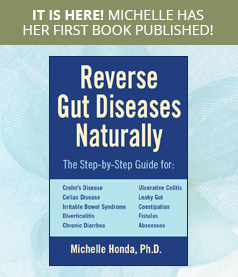

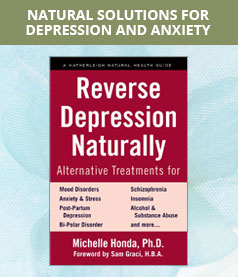
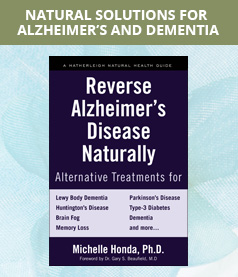
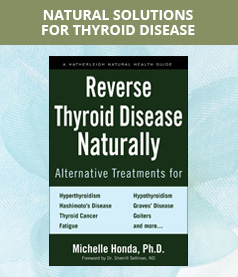

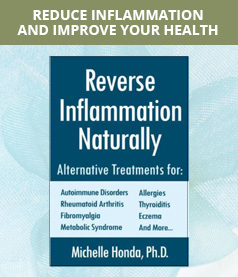
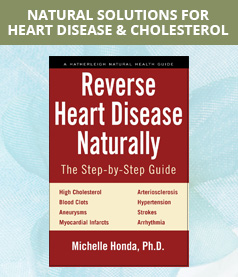
Follow Us!